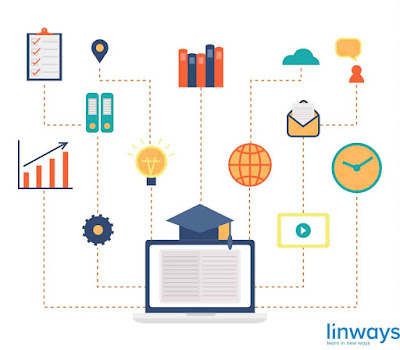E-learning or the electronic learning is the application of ICT into the core business of education. It is the delivery of learning and training through digital resources. E-learning is suitable to distance and flexible learning especially this time of pandemic.
Role of ICT in the Teaching and Learning Process
ICT and e-leaning can enhance the quality of higher education through innovative methods by increasing the students' motivation, interest and engagement, by facilitating the acquisition of skills and by enhancing teacher training which will eventually improve communication and exchange of information.
Advantages And Disadvantages Of E-Learning
Learning in a classroom is more personal and interactive, but there are a lot of benefits to enrolling in an online course, and most of it is in terms of convenience and affordability.
- You are able to link the various resources in several varying formats.
- It is a very efficient way of delivering courses online.
- Due to its convenience and flexibility, the resources are available from anywhere and at any time.
- Everyone, who are part time students or are working full time, can take advantage of web-based learning.
- Web-based learning promotes active and independent learning.
- As you have access to the net 24x7, you can train yourself anytime and from anywhere also.
- It is a very convenient and flexible option; above all, you don't have to depend on anyone for anything.
- Not only can you train yourself on a day to day basis, but also on weekends or whenever you have the free time to. There is no hard and fast rule.
- Through discussion boards and chats, you are able to interact with everyone online and also clear your doubts if any.
- The video instructions that are provided for audio and video learning can be rewound and seen and heard again and again if you do not happen to understand the topic first time around.
Disadvanatges of E-learning
- Most of the online assessments are limited to questions that are only objective in nature.
- There is also the problem of the extent of security of online learning programs.
- The authenticity of a particular student's work is also a problem as online just about anyone can do a project rather than the actual student itself.
- The assessments that are computer marked generally have a tendency of being only knowledge-based and not necessarily practicality-based.









No comments:
Post a Comment